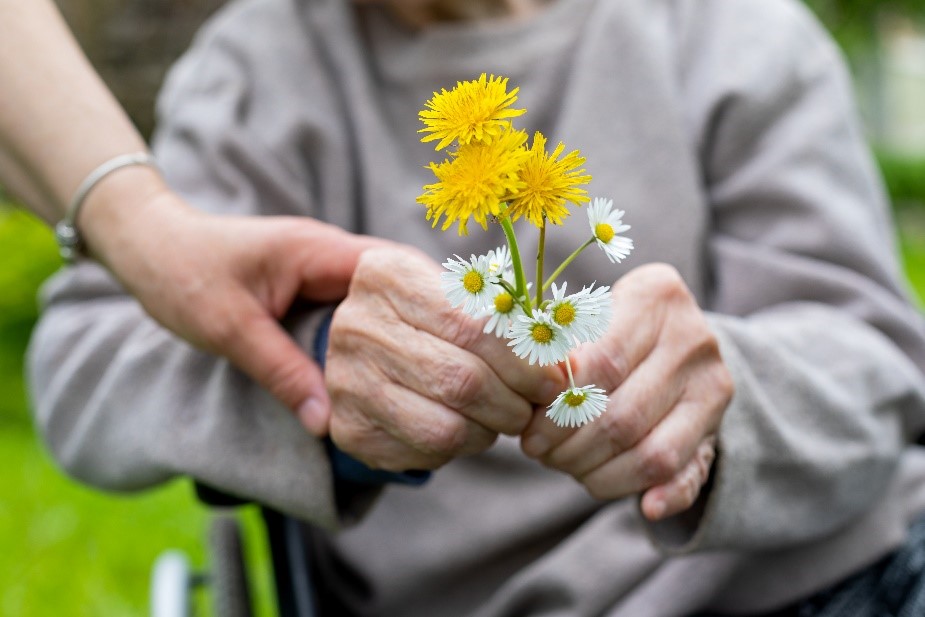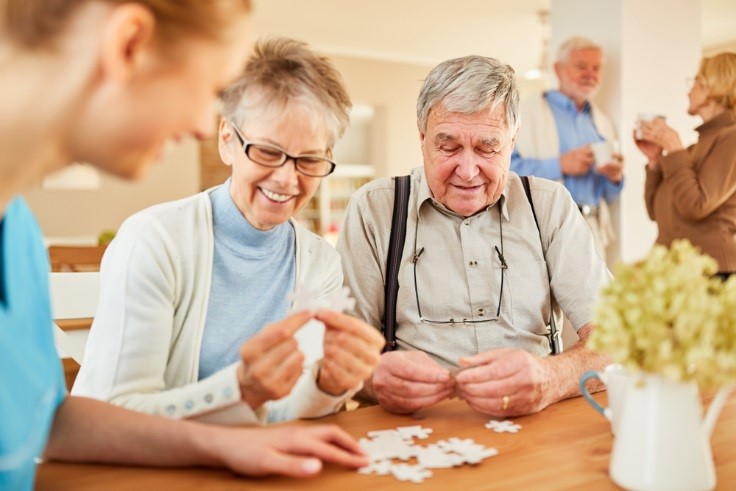As spring transitions to summer, countless people are taking advantage of gardening in their homes. Even though not everybody has a green thumb, gardening is beneficial, especially for older adults with Alzheimer’s disease. Follow below to learn why gardening is helpful for people with Alzheimer’s or related forms of Dementia.

Gardening Benefits
Gardening can improve Alzheimer’s or a similar type of Dementia without medications. Digging in the soil can reduce nervousness and fretfulness for seniors. Additionally, maintaining and planting new flowers can increase a sense of independence and boost confidence for older adults. Gardening can reduce pain and reliance on pain medications for many people. Seniors with Dementia will enhance their memory and ability to have happier days.
Gardening Essentials
As a caregiver for somebody with Alzheimer’s disease, you need to create an outdoor space that helps them enjoy time with you. Below are a few ideas to help get started and stay on track:
- Preparation: Preparing where to start gardening and what plants to use is vital. It will help creativity, exercise, and more. Caregivers and senior adults can choose what flowers, herbs, and vegetables to use to grow over time.
- Garden containers and beds: Sometimes, there are moments when there is no place to plant a garden in the ground. Or, a senior who has mobility challenges may be restricted from growing flowers they want. Containers or raised beds take less space and provide a safer way to care for a garden, and it is a fun way to take care of plants.

- Circular Gardens: A safety concern that comes up when considering people facing Alzheimer’s or a related type of Dementia is a patient wandering off, and creating a garden path that makes a circle can lower the wandering. Also, keep the senior gardens far away from exits or gates.
- A Comfortable Seat: Gardening can be difficult, so it is crucial to have a place to rest. A comfortable bench or chair in the garden can be very beneficial.
- Be Mindful: Sharing responsibility for a few garden tasks with a senior can help them. Being mindful that some functions may be too complex for seniors can help them not overexert themselves.

Following these helpful tips can help your loved one feel appreciated and have a healthier lifestyle. Gardening is a great way to bond with them as well.
In Summary
Finding an activity for an adult with Alzheimer’s can be difficult. Yet, one of the best things they can do to improve their health is gardening. Gardening is one of the activities done at Home Instead. At Home Instead Senior Care, we provide gardening activities for your loved one. For more information on our activities in Wilmington, NC, please call us at (910) 342-0455 or visit our website here.


